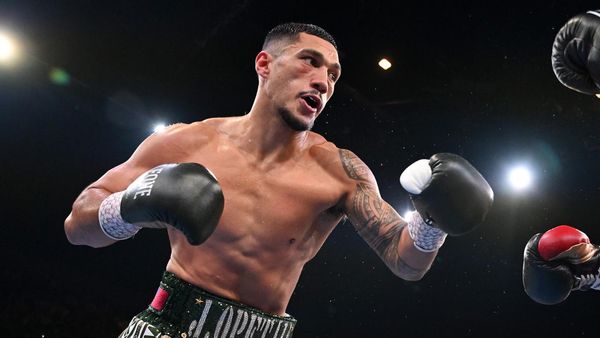
So, how was your January? Perhaps like many people you engaged in a little belt-tightening, foreswore alcohol, began a new fitness regime, creatively restructured a few festive debts. Or perhaps you simply grimaced and shivered your way through a month of rising prices and falling temperatures, waited patiently in the bus queue or on the picket line, simply trying to make it to the next place.
At which point enter the Premier League, with its £815m of January spending, its doctrine of schlock and awe, its unshakeable fixation on persuading men in shirts to wear other shirts before a clock runs out. And on one level the dissonance here is hard to ignore, the temptation to juxtapose Chelsea’s bottomless balance sheet with the efficiencies and strictures being demanded of those who watch them every week. Just imagine how many nurses’ salaries Todd Boehly could have funded with the purchase of one Enzo Fernández. But of course he won’t, will he?
There are two interlinked points to be made at this juncture. Perhaps the tritest of which is that it is probably for the best that the Chelsea chairman is not in charge of the NHS budget. One could only imagine the carnage that would ensue: the billions squandered on speculative new technologies and inexperienced teenage surgeons from the developing world, entire GP surgeries sent on loan to France, £25m to AstraZeneca for a very shiny paracetamol.
The other point is that to Premier League clubs who see themselves as entertainment providers, the grotesque disconnect between football and real life has become not a weakness but the very basis of the exercise. A little context: £815m is about what Disney spends on production and programming every 12 days.
This is the logarithmic scale upon which we should probably be judging English football’s winter of content: not simply as a sporting concern but a form of investment in the product, perhaps even a product in its own right. Mykhailo Mudryk and the Seven Suitors. The Adventures of Moisés Caicedo. The inexhaustible comedy franchise known as Tottenham’s Search For A Right-Back.
And frankly: were you not entertained? Take the morality out of this for a second and there is a cheap macabre thrill in the sheer spectacle of so much money being hurled around with so little effort. The January window is particularly generous in this respect, given the vast emotional disparities between those clubs who really need to buy and those who do not (many of whom nevertheless think they do). Southampton, Bournemouth and Wolves have been extremely busy. Brighton and Brentford have done virtually nothing. Make of that what you will.
What is genuinely breathtaking here is the sheer waste and inefficiency, the momentous decisions taken in a few sugar-rush days. Tottenham haggled hard on the Sporting defender Pedro Porro before having to give Matt Doherty away to Atlético Madrid for free because they had apparently lost count of their outgoing loans. Not even Nottingham Forest fans really believe that all six of their January signings (to go with the 22 they signed in the summer) will work out. Meanwhile, Everton sold Anthony Gordon to Newcastle for £40m and then did absolutely nothing. What happened to the money? Does it matter? Was it even real money in the first place? Who knows?

Perhaps the best illustration of this was the way in which stars of previous transfer windows slipped out of the back door largely unnoticed. Diego Llorente to Roma. Ayoze Pérez to Real Betis. Cristiano Ronaldo to Al Nassr. Bryan Gil to Sevilla. Fábio Silva to PSV Eindhoven. This is the waste product nobody wants you to see: the inevitable debris of an industry founded on speculation and theatre, where no one really mourns the mistakes because none of this is real anyway. The Premier League thanks you for your service. Good luck finding your children a new school.
Naturally some tangible trends can be identified. The £288m spent by Chelsea alone – more than the combined amount spent by the Bundesliga, Serie A, La Liga and Ligue 1 – was further evidence of the Premier League’s grip on the global transfer market. Spezia are fighting relegation from Serie A and could probably have done without losing one of their best defenders, Jakub Kiwior. Still, the Arsenal bench is a lovely spot, and £21m is a lot of money, so what can you do?

More of Europe’s smaller clubs – and quite a few of their larger clubs – will end up going down this path, refashioning themselves as talent factories for the Premier League mid-table. The commodification of child footballers will accelerate; more unscrupulous actors will see a profitable future in trafficking. One payday subsidises a hundred failures. It’s a numbers game at heart.
And so what of the ordinary punter, watching this vividly unfolding farce from afar with a mixture of titillation and distaste? It has become customary to point out that it is the fan who ends up paying for all of this: your ticket stub, your replica shirt, your television subscription. But if this was undoubtedly true once, it is less so now.
More often this is not in fact your money but private equity money, sponsor money, money advanced by a generous merchant bank, money buttressed by viewers in India and Indiana, leveraged against an arrow on a graph, boosted by the overseas tours and commercial deals and social media numbers and crypto purchases of the future. Trying to gauge your own personal stake in this enterprise is as fanciful as walking into a room and demanding your own portion of air.
This dislocation did not occur in a single January or a single season. But when most of the entire Premier League is under private foreign ownership, and most of its proceeds end up funnelled elsewhere, it becomes an interesting metaphysical exercise to ask what part of it is actually ours. Has it not simply become the sporting equivalent of the City of London: an unregulated playground for the world’s super-rich, shovelling and parcelling around vast sums of other people’s money while somehow claiming that it is providing a vital public service?
This is not your world and it bears no real relevance to your life. But for the right price, you can pull up a chair at the back and watch.
• Do you have an opinion on the issues raised in this article? If you would like to submit a response of up to 300 words by email to be considered for publication in our letters section, please click here.







